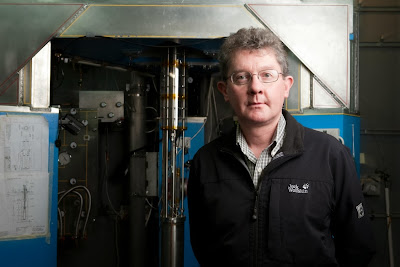Scientists introduce a general theoretical approach that
describes all known forms of high-temperature superconductivity and their
"intertwined" phases
Years of experiments on various types of high-temperature
(high-Tc) superconductors—materials that offer hope for energy-saving
applications such as zero-loss electrical power lines—have turned up an amazing
array of complex behaviors among the electrons that in some instances pair up
to carry current with no resistance, and in others stop the flow of current in
its tracks. The variety of these exotic electronic phenomena is a key reason it
has been so hard to identify unifying concepts to explain why high-Tc
superconductivity occurs in these promising materials.

